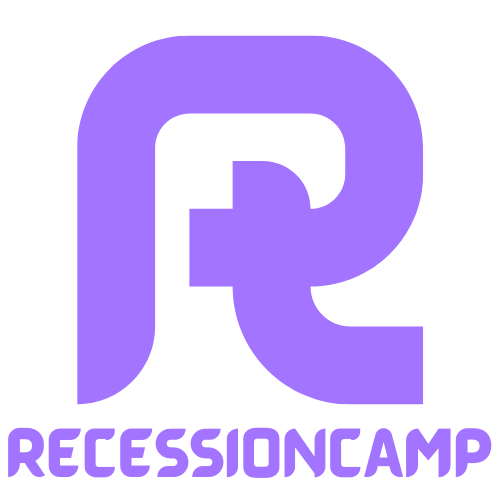Freelancing offers a world of opportunities, but navigating it successfully requires smart strategies. Many people are drawn to the freedom and flexibility that comes with being their own boss, yet they often struggle to establish a sustainable income. Understanding effective freelancing strategies can make all the difference between thriving and merely surviving in this competitive landscape.
From building a strong personal brand to mastering client relationships, freelancers need a toolkit of techniques to stand out. With the right approach, they can attract high-quality clients and secure projects that align with their skills and passions. This article explores essential freelancing strategies that empower individuals to elevate their careers and achieve their goals.
Table of Contents
ToggleUnderstanding Freelancing Strategies
Freelancing strategies encompass the approaches freelancers use to succeed in a competitive landscape. These strategies enable freelancers to manage their workload, build relationships, and promote their skills effectively.
What Are Freelancing Strategies?
Freelancing strategies refer to structured methods that freelancers apply to enhance their business operations. Examples include:
- Niche Specialization: Focusing on a specific industry, such as graphic design or content writing, allows freelancers to stand out and showcase their expertise.
- Networking: Building connections through events, online groups, and social media platforms can lead to new opportunities and referrals.
- Time Management: Implementing techniques like the Pomodoro Technique or time-blocking enhances productivity and ensures timely project delivery.
- Portfolio Development: Maintaining an updated portfolio demonstrates skills and attracts potential clients seeking quality work.
Importance of Effective Freelancing Strategies
- Client Attraction: Well-defined strategies help freelancers attract and retain high-quality clients, creating a steady flow of projects.
- Brand Reputation: Consistent application of professional practices builds a strong personal brand, fostering trust and credibility in the marketplace.
- Financial Stability: Effective strategies mitigate income fluctuations by diversifying income streams and stabilizing cash flow.
- Skill Enhancement: Actively pursuing learning opportunities leads to skill development, keeping freelancers competitive and relevant in their field.
Building Your Brand

Building a strong personal brand is crucial for freelancers aiming to stand out in a competitive market. An effective brand establishes credibility and attracts high-quality clients.
Creating a Personal Brand
Creating a personal brand involves defining unique skills and values. Identify specific offerings that differentiate a freelancer from others. Develop a cohesive visual identity, including a professional logo, consistent color schemes, and typography. Craft a compelling biography that highlights relevant experiences and expertise, focusing on what makes the freelancer unique. Maintain consistency across all platforms, including websites and portfolios, to establish a recognizable presence. Utilize testimonials from previous clients to enhance credibility, showcasing positive feedback and successful projects.
Leveraging Social Media for Visibility
Leveraging social media can significantly enhance a freelancer’s visibility. Select appropriate platforms where target clients are active, such as LinkedIn, Instagram, or Twitter. Regularly share valuable content related to expertise, including tips, insights, and industry news. Engage with followers by responding to comments and participating in discussions to build a community. Utilize relevant hashtags to increase the reach of posts, allowing potential clients to discover the freelancer’s work. Collaborate with other professionals to expand networks and gain exposure to new audiences. Consistent engagement on social media fosters relationships that can lead to potential client referrals.
Finding Clients
Finding clients remains a crucial aspect of freelancing. Adopting effective strategies can significantly enhance a freelancer’s ability to attract high-quality clients.
Networking Tips for Freelancers
- Attend Industry Events: Participate in workshops, conferences, and trade shows relevant to the freelancing field. These events provide opportunities to meet potential clients and exchange contact information.
- Join Online Communities: Get involved in forums and social media groups focused on specific industries or freelancing topics. Engaging with members can lead to valuable connections and referrals.
- Leverage Professional Associations: Become a member of reputable professional organizations. These associations often host networking events and offer resources that can help find clients.
- Host Webinars or Workshops: Share expertise by organizing educational sessions. This strategy positions freelancers as industry experts while attracting potential clients seeking their services.
- Follow Up on Connections: After meeting someone new, reach out via email or social media to maintain the relationship. Consistent communication increases the chance of being remembered when a project arises.
Utilizing Freelance Platforms
- Research Popular Platforms: Platforms like Upwork, Freelancer, and Fiverr connect freelancers with clients. Investigate which site aligns best with specific skills or services offered.
- Create a Comprehensive Profile: Craft an engaging profile that highlights unique skills, showcases previous work, and includes a professional photo. A well-structured profile attracts potential clients.
- Optimize Proposals: When submitting proposals, personalize each one based on the client’s needs. Address specific project requirements to demonstrate understanding and interest.
- Gather Client Reviews: Encourage satisfied clients to leave positive reviews. High ratings enhance credibility and increase visibility on freelance platforms.
- Stay Active on Multiple Platforms: Register on several platforms to maximize exposure. Regularly updating profiles and actively seeking opportunities across these tools increases potential client leads.
Setting Your Rates
Setting competitive and fair rates is vital for freelancers looking to build a sustainable income. Proper pricing reflects experience, skill level, and market demand.
How to Price Your Services
Freelancers can determine their rates by assessing market trends, considering their expertise, and evaluating their target audience’s budget. Researching competitors’ rates helps freelancers understand the standard pricing structure. Calculating expenses, including taxes, software, and marketing costs, ensures all expenses are covered.
Freelancers might consider their desired hourly income and divide it by billable hours per week to establish a base rate. Choosing to offer package deals or retainer agreements can attract long-term clients while ensuring consistent income.
Common Pricing Models in Freelancing
Several pricing models exist for freelancers, each tailored to specific project types and client needs:
- Hourly Rate: Charging clients per hour worked. This model suits projects with uncertain durations. Freelancers need to track hours accurately.
- Fixed Rate: Setting a flat fee for a project. This approach rewards efficiency and works well for defined deliverables. Discussing project scope before pricing is essential.
- Retainer Fee: Clients pay a predetermined amount for access to freelance services over a specified period. This model ensures predictable income and fosters long-term relationships.
- Value-Based Pricing: Prices are based on the perceived value of the services provided to the client. Understanding client goals helps freelancers justify higher rates.
- Commission-Based Pricing: Freelancers charge a percentage of sales generated through their services. This model benefits freelancers in sales-focused roles.
Selecting the right pricing model relies on project specifics, client preferences, and the freelancer’s business strategy.
Managing Your Time
Effective time management plays a vital role in a freelancer’s success. Implementing strategies and utilizing tools can enhance productivity and lead to better project outcomes.
Time Management Techniques
- Prioritization: Freelancers should categorize tasks based on urgency and importance to allocate time effectively. Using methods like the Eisenhower Box helps distinguish between what needs immediate attention and what can wait.
- Time Blocking: Allocating specific blocks of time for different activities fosters focus. Setting aside dedicated periods for client work, administration, or personal development helps maintain a balanced workload.
- Pomodoro Technique: Working in short bursts enhances concentration. This method involves 25 minutes of focused work followed by a 5-minute break, increasing overall productivity and preventing burnout.
- Setting Goals: Establishing clear, measurable goals enables freelancers to track progress. Daily, weekly, and monthly objectives provide direction and a sense of accomplishment.
- Limit Distractions: Minimizing interruptions can significantly improve efficiency. Freelancers should identify common distractions and implement strategies to mitigate them, such as designating a quiet workspace or using apps that block distracting websites.
Tools to Enhance Productivity
| Tool | Purpose |
|---|---|
| Trello | Project management and task organization |
| Todoist | Task management and prioritization |
| Asana | Team collaboration and workflow tracking |
| Toggl | Time tracking and reporting |
| Focus@Will | Background music for enhanced concentration |
Freelancers can leverage these tools to streamline their workflow. Trello offers a visual way to manage tasks. Todoist and Asana help organize and prioritize work. Toggl assists with monitoring time spent on various tasks, while Focus@Will creates a conducive environment for focus. These tools, when utilized effectively, contribute to better time management and increased productivity for freelancers.
Freelancing offers immense potential for those willing to navigate its complexities. By implementing effective strategies freelancers can not only attract quality clients but also build a sustainable career. Focusing on niche specialization and cultivating a strong personal brand will set them apart in a crowded market.
Time management techniques and the right pricing models will further enhance their ability to deliver value while maintaining financial stability. Ultimately it’s about aligning passion with strategy to create a fulfilling freelance journey. Embracing these approaches will empower freelancers to thrive and achieve their professional aspirations.




